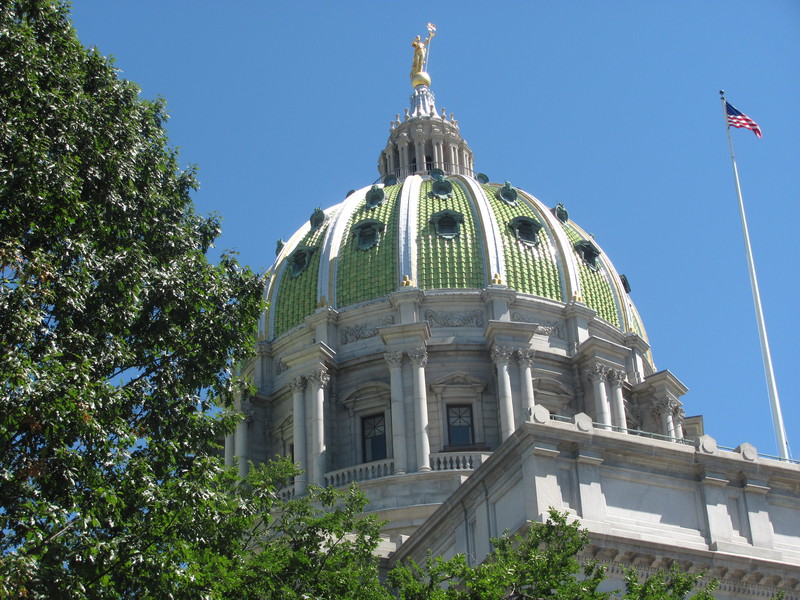
The Pennsylvania online poker industry didn’t quite accomplish its goal of legalizing poker within the state in 2015, but it came close and has a bright future ahead.
Currently, there are three states operating licensed, regulated online poker sites (Nevada, Delaware, New Jersey), with more on the horizon in the coming years. Pennsylvania could well be the next state ready to join in the fun, possibly as soon as early 2016.
That’s good news for Pennsylvania poker players and the gaming community at large. The fight towards legislation in the state began early in the year.
Of course, when any state fights to legalize online gambling, casino mogul Sheldon Adelson seems to step in to attempt to ruin everyone’s fun. With the Sands Bethlehem being his Pennsylvania presence, he definitely had something to say about going online this year.
Adelson brought his RAWA posse to Pennsylvania’s House Gaming Oversight Committee meeting in April to let them all know just how much he dislikes the idea of legalizing online poker.
First Big Step in July
After months of seemingly ineffective discussions, online poker legislation took a big step forward in July.
Senators Robert Tomlinson, Elder Vogel, and Joseph Scarnati supported a new bill that would allow the state’s 12 legal casinos to offer Internet gambling, including poker.
A week prior, Senator Sean Wiley proposed a bill that was specific to online poker. However, according to Wiley, legal online poker sites wouldn’t begin operation until 2017, with licenses being granted in 2016.
Wiley’s bill received some support and some criticism. He proposed a high tax rate on revenues, 36 percent. Other state senators weren’t in agreement and proposed much lower tax rates in order to support industry growth.
In comparison, New Jersey has a 15 percent tax rate effective on Internet poker sites that are licensed in the state. Requiring a higher tax rate could cut too deep into profits, which would make it difficult for poker sites to thrive.
Senator Payne Remains Optimistic
By late in the summer, online poker legislation in Pennsylvania appeared to be impossible in 2015. That’s likely true, but State Representative John Payne (R-Dauphin County) refused to give up hope and remained optimistic.
His continued efforts, along with others, could very well lead to an Internet poker or gambling bill being passed in early 2016.
Payne is the majority chairman of the House Gaming Oversight Committee. He is in a position to influence other state lawmakers.
Payne proposed a 14 percent tax rate on online poker revenues, but was met with some opposition, including chairwoman of the Community, Kim Ward (R-Westmoreland County). Ward proposed a 54 percent tax rate, but that would make it difficult for any poker site operator to turn much of a profit.
Poker Players Alliance Executive Director John Pappas was highly critical of Ward’s proposed SB 900 bill.
“It defeats the purpose of online poker, to be able to deposit from your computer,” Pappas said. “I think it’s someone’s misguided understanding on how to establish synergies between brick-and-mortar casinos and online players. There are other ways to bring people to your properties.”
Meanwhile, Payne’s HB 649 made it through the House Gaming Oversight Committee in mid-November, and won Pappas’ approval to boot. The overall House, Senate, and finally the governor’s desk are the remaining hurdles for this bill to become law.
Poker players in Pennsylvania weren’t able to play online in 2015, but positive steps have been made towards legislation. Next year could very well be when the state finally legalizes online poker, but there’s still a ways to go.


